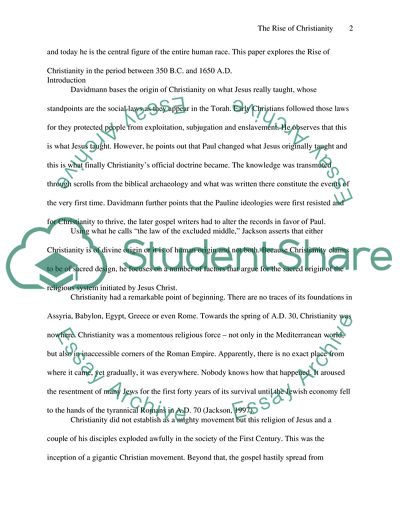Cite this document
(“The Origin Of Christianity Research Paper Example | Topics and Well Written Essays - 1250 words”, n.d.)
The Origin Of Christianity Research Paper Example | Topics and Well Written Essays - 1250 words. Retrieved from https://studentshare.org/religion-and-theology/1736003-rise-of-christianity
The Origin Of Christianity Research Paper Example | Topics and Well Written Essays - 1250 words. Retrieved from https://studentshare.org/religion-and-theology/1736003-rise-of-christianity
(The Origin Of Christianity Research Paper Example | Topics and Well Written Essays - 1250 Words)
The Origin Of Christianity Research Paper Example | Topics and Well Written Essays - 1250 Words. https://studentshare.org/religion-and-theology/1736003-rise-of-christianity.
The Origin Of Christianity Research Paper Example | Topics and Well Written Essays - 1250 Words. https://studentshare.org/religion-and-theology/1736003-rise-of-christianity.
“The Origin Of Christianity Research Paper Example | Topics and Well Written Essays - 1250 Words”, n.d. https://studentshare.org/religion-and-theology/1736003-rise-of-christianity.


